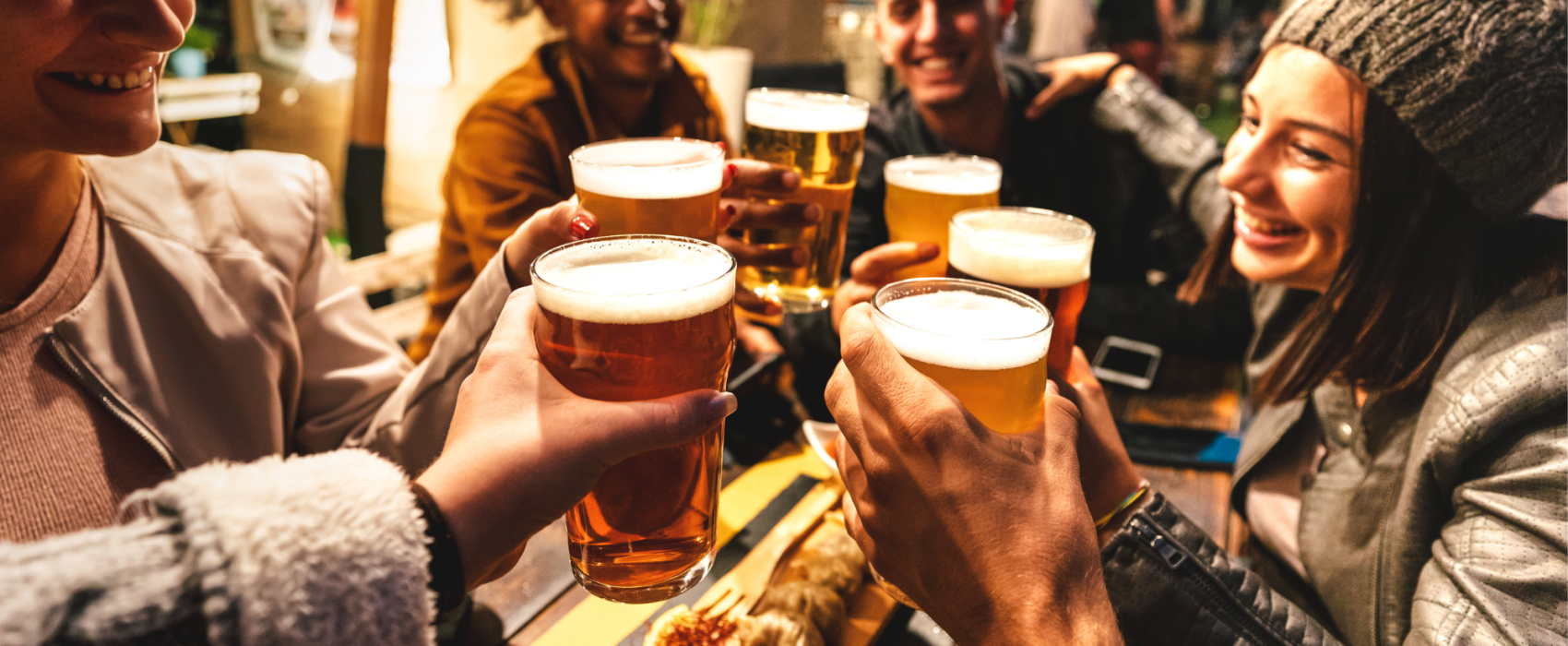Alcohol can sometimes play a centre-stage role in our lives. It’s there when we celebrate, commiserate and when we’re just trying to cope. Yet alcohol is a drug and can be harmful or even toxic, with negative repercussions ranging from poor sleep, bad decision making and personal injury, to aggressive or uncontrollable behaviour. Each year, thousands of people in the UK experience long-term health problems as a result of the alcohol they consume, or even lose their lives in alcohol-related accidents/injuries.
We all have the ability to create an environment in which we are better informed and better protected from the harms caused by alcohol.
Know the Risks
Consistently drinking over 14 units of alcohol per week increases the risk of developing serious health conditions, including liver disease, heart disease, stroke and several types of cancer, including breast, throat, liver and mouth cancer. Alcohol is also a culprit in raising blood pressure and weight gain due to its high calorific content.
The impact of alcohol isn't limited to physical health; it extends to mental wellbeing. Alcohol misuse is often linked with mental health disorders such as depression and anxiety, and alcohol dependency can lead to a host of social problems, including relationship issues and performance problems at work.
In the short-term, the immediate risks of binge drinking include accidents and injuries. Alcohol can impair judgment and coordination, leading to an increased likelihood of accidents, including traffic collisions and falls. It can also result in alcohol poisoning, a serious and potentially deadly condition.
Know Your Limits
The NHS has guidelines to help individuals make informed choices about their alcohol intake. With so many different drinks and glass sizes, from shots to pints – not to mention bottles – it's easy to get confused about how many units are in your drink.
One unit equals 10ml or 8g of pure alcohol, which is around the amount of alcohol the average adult can process in an hour. This means that within an hour there should be, in theory, little or no alcohol left in the blood of an adult, although this will vary from person to person.
To keep health risks from alcohol to a low level if you drink most weeks:
- men and women are advised not to drink more than 14 units a week on a regular basis;
- spread your drinking over 3 or more days if you regularly drink as much as 14 units a week;
- if you want to cut down, try to have several drink-free days each week.
14 units is equivalent to 6 pints of average-strength beer or 10 small glasses of lower-strength wine.
Link out: Alcohol Change UK has a handy online calculator to help you quickly find out how many units are in a particular drink, or to check how much you're drinking. Unit calculator | Alcohol Change UK
If you drink alcohol every day or have experienced withdrawal symptoms when you have stopped drinking in the past, seek guidance from a healthcare professional on how to cut down your intake safely.
Stop Sober Shaming
The #StopSoberShaming campaign, initiated by Alcohol Change UK, aims to address and dismantle the stigma associated with not drinking alcohol. This important movement encourages respect for personal choices and promotes a healthier and more-inclusive social environment.
Sober shaming is the act of making someone feel embarrassed or out of place because they are not drinking alcohol. It often manifests in the form of jokes, questioning someone's decision not to drink or expressing disbelief that they can have fun without alcohol.
People may not know they’re sober shaming, and many of those who sober shame don’t do so on purpose. But this behaviour can make those not drinking feel isolated or pressured to conform to drinking norms, which can be particularly challenging for those in recovery from alcohol addiction or those who have chosen sobriety for health, religious or personal reasons.
How to help a mate who wants to stop or reduce their drinking:
- check the venue you’re going to has a decent selection of alcohol-free drinks;
- join in with not drinking! Showing solidarity in this way can be a huge confidence boost to people feeling nervous about going non-alcoholic. And if you don’t want to join them, just don’t pressure them into drinking;
- don’t question it when they tell you they’re not drinking;
- be curious, but non-judgmental. Some people won’t mind being asked ‘why’, but try not to treat the decision like it’s strange or boring. Imagine a friend has stopped smoking – would you be more supportive?
- be aware of your comments/behaviour around non-drinking and sobriety. Have you ever made a joke, or said something, about a mate not drinking? Did it help or hinder their progress? Refraining from negative comments will help;
- be their backup! If you hear someone else pressuring your non-drinking friend to drink or giving them a hard time, offer your friend some support. You could politely ask the person to back off, or just check in with your friend afterwards and make sure they know you support them.

